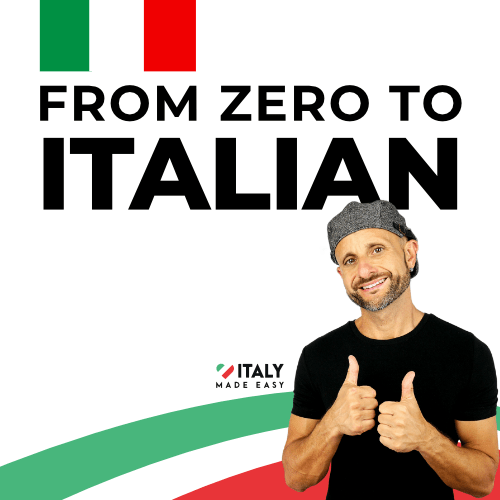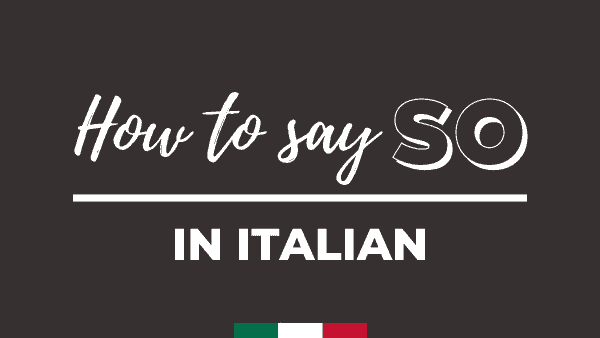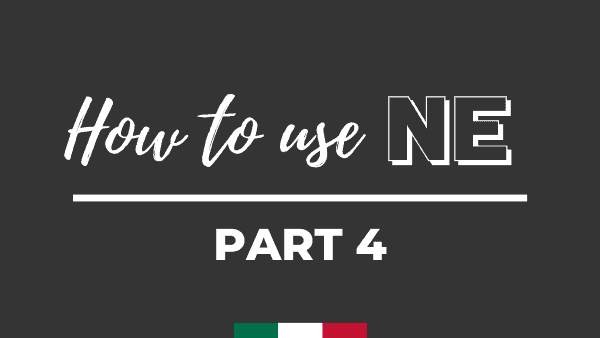When to use CITTÀ, PAESE and VILLAGGIO
David asks: “What's the difference between CITTÀ, PAESE, VILLAGGIO?“
Let's start with CITTÀ
CITTÀ simply means CITY and we are going to use this word ANY time we are talking about a city.
In Italy, the definition of a city is any location with more than 50,000 inhabitants, but in reality we tend to only consider a place “a city” when it nears 100,000 people.
Download the PDF
No email required
▷ SOME EXAMPLES:
ROMA È UNA CITTÀ MOLTO ANTICA
Rome is a very ancient city
TI PIACE ABITARE IN CITTÀ?
Do you like living in a city?
There is an exception in usage. When in English you say that you are going “to the city” (“downtown”, “to the CBD” or whatever you say in your English), WE DO NOT USE the word CITTÀ. We say “IN CENTRO”.
I am going to the city = VADO IN CENTRO
The real problem is with PAESE
The Italian word PAESE has two very different meanings, and this can often confuse you.
- COUNTRY
- TOWN
In reality, this should not confuse you at all, since context will always make it clear whether the speaker is talking about a country or a town.
▷ SOME EXAMPLES
L'ITALIA È UN PAESE TURISTICO
Italy is a touristy country
NETTUNO È UN PAESE TURISTICO
Nettuno is a touristy town
How do we know? We know that Italy is a country and… you probably have never heard of Nettuno (my hometown), so it has to be just a town!
NETTUNO È UN PAESE SUL MARE
Nettuno is a seaside town
L'AUSTRALIA È UN PAESE MOLTO GRANDE
Australia is a very large country
Another word for COUNTRY is NAZIONE
(feminine, LA NAZIONE) and I personally use NAZIONE over PAESE most of the time .
Learn Italian to Fluency
- The program you've been dreaming of is here
- Better than having a private tutor
- In-Depth Italian lessons for complete clarity
- Extensive pratice opportunities
- Access to our community - you are never alone!
- A true learning experience to Italian Fluency
So what about VILLAGGIO?
In short, we do not use the word VILLAGGIO when talking about any town, as little as it may be!
VILLAGGIO does mean “village” but it's only used to describe a “tribal village”, the kind we would imagine when talking about history, Roman conquerors etc.
We basically have no “VILLAGGI” in Italy!
But I've heard Italians say VILLAGGIO…!
True. Italians use the word VILLAGGIO regularly, but with the meaning of TOURIST RESORT, usually a large hotel complex with daily entertainment offered to the guests (think “Dirty Dancing” – if you're old enough to get the reference!).
Club Med is a VILLAGGIO TURISTICO.
join our italian community
- Access a ton of content on this website
- Weekly Digest with a ton of Italian lessons, videos & facts!
- Invitation to Live Q&A Lessons with Manu
- Invitation to exclusive Webinars, Live Lessons & Games
- Coupons, Discounts & Specials for our Premium Italian Courses
So how do we talk about small towns?
Usually a small town is simply called a PAESINO.
PAESE = town
PAESINO = town with fewer residents, maybe less than 10,000?
For smaller places, we use the word BORGO a lot.
BORGO is related to the English word BOROUGH, often seen as part of a town's name.
Usually (but not necessarily) a BORGO is an old town, a bit isolated (up a hill?) and with very old buildings (Medieval?).
We also use BORGO for rural towns.
Are there other words used to describe cities, towns and villages?
Yes!
COMUNE is a generic word to describe any place that is a not a city! It literally refers to the political administration of a location (“town hall”, “municipality”).
NETTUNO È UN COMUNE NELLA PROVINCIA DI ROMA
Nettuno is a town in the province of Rome
CENTRO ABITATO is another generic term used for very small towns, the ones that do not have a Town Hall / local administration. Think of a small residential area that pops up near an Industrial area.
CITTADINA is used for “SMALL CITIES”. I know, confusing, because that's also a TOWN, right? Precisely! The definition is a CITTADINA in terms of population is anywhere between 10,000 and 50,000.
Download the PDF
No email required



